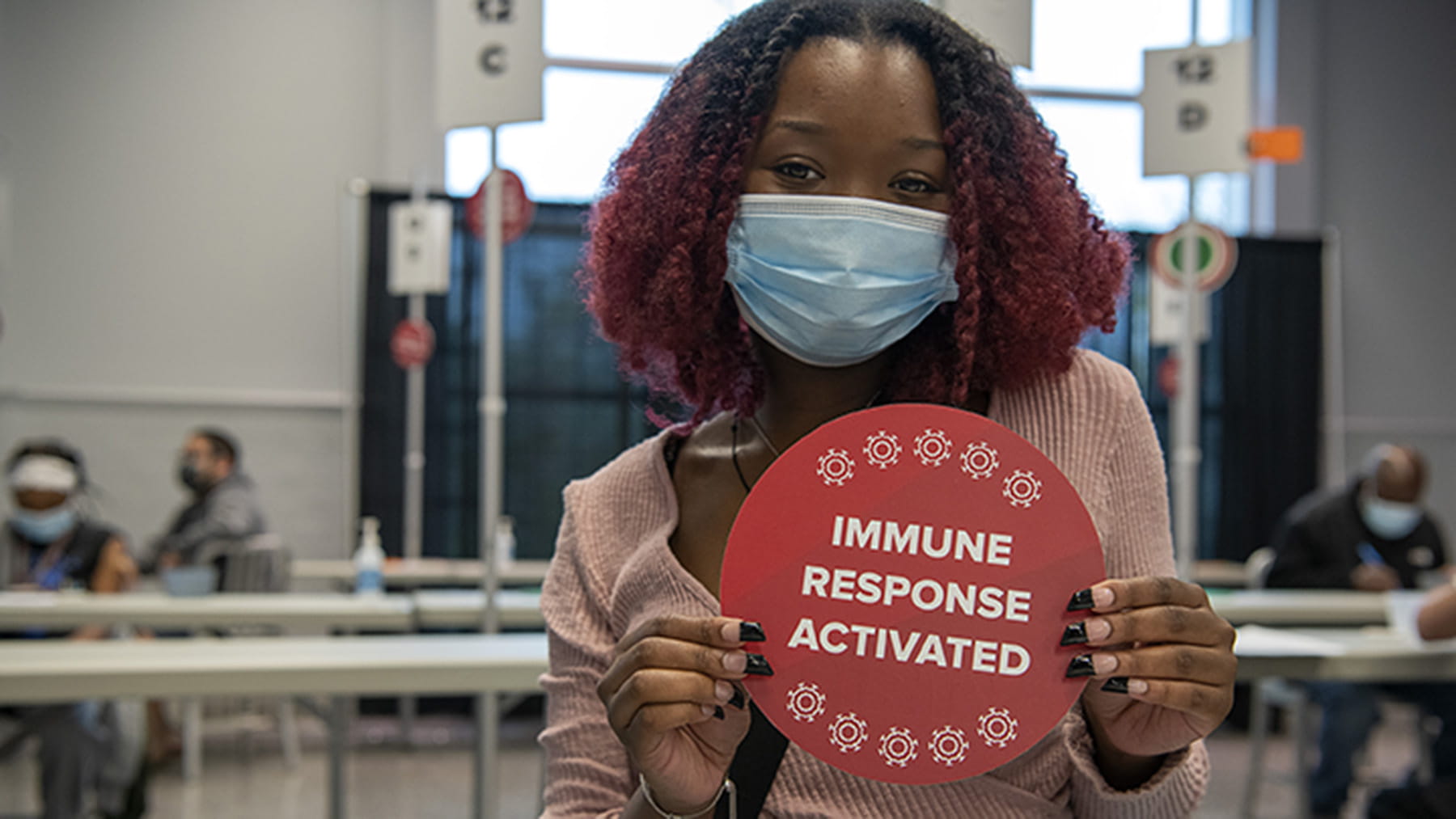Should I get a COVID-19 vaccine if I’ve already had COVID-19?
Does COVID-19 infection create enough antibodies for immunity?
 Editor’s note: As what we know about COVID-19 evolves, so could the information in this story. Find our most recent COVID-19 blog posts here, and learn the latest in COVID-19 prevention at the Centers for Disease Control and Prevention.
Editor’s note: As what we know about COVID-19 evolves, so could the information in this story. Find our most recent COVID-19 blog posts here, and learn the latest in COVID-19 prevention at the Centers for Disease Control and Prevention.The COVID-19 vaccine and COVID-19 infection itself both can help the body create antibodies, which offer some immunity to later COVID-19 infection — though the potential strength of that immunity may be different.
So what should you do if you haven’t yet been vaccinated but you have had COVID-19?
You should always talk with your health care provider if you need help making a decision about COVID-19 vaccination, but here’s what to know based on available data:
You probably should get the COVID-19 vaccine if you had a mild case of COVID-19
There is now good evidence showing that the immunity induced by prior COVID-19 infection is protective and sustained, if it’s a moderate or severe case. Your risk of reinfection isn’t zero, but it is low.
What’s not so clear is whether the same can be said about immunity induced after mild infection. We also know that a single vaccine dose at least one month after an episode of COVID-19 infection will result in a significant boost in the levels of antibodies that protect you from COVID-19.
Therefore, patients who had a mild previous episode of COVID-19 should consider getting one dose of a COVID-19 vaccine at least one month after the infection episode has completely resolved. This may be of particular importance for patients who have risk factors for severe disease, as a vaccine dose would ensure that they remain well-protected. If you’re unvaccinated but have had COVID-19, talk to your health care provider about whether one dose of the COVID-19 vaccine would be recommended for you.
COVID-19 vaccination may not be needed after a moderate or severe COVID-19 infection
If you’ve had a moderate or severe case of COVID-19 and are not vaccinated for COVID-19, current data tells us that you may have strong and durable enough immunity to protect you from reinfection without getting a COVID-19 vaccine.
Natural immunity could be protective for at least 8 months
Natural immunity resulting from prior COVID-19 infection has been shown to be protective against reinfection and is durable for at least eight months and likely longer, on average.
However, we know that the severity of infection (whether it’s mild, moderate or severe) correlates at least partially to the amount of virus that a person was exposed to. So if you’ve had a mild case of COVID-19, you might not have the same level of immune response and protection against reinfection as someone who had moderate or severe symptoms from COVID-19.
At this point, we have very clear evidence that the vaccines approved for COVID-19 in the United States are extremely safe and effective at preventing severe disease. Even after the neutralizing antibodies induced by the vaccines begin to wane, the long-lived memory B cells and T cells remain and will result in the rapid production of high levels of antibodies if they are exposed to the SARS-CoV-2 virus.
We can reasonably consider people who have had COVID-19 “immune” to some degree
As a public health strategy, it is reasonable to consider those who have had prior COVID-19 infection protected against severe COVID-19 disease as much as those who have been vaccinated. However, for those who are unvaccinated and haven’t had prior infection, the risk of acquiring SARS-CoV-2 (the virus that causes COVID-19) is high because of the highly transmissible delta variant.
Risk factors for severe COVID-19 still matter
We also know that there are specific risk factors that make it more likely that a person will progress to severe disease that could result in hospitalization and/or death. These risk factors include being overweight or obese, age 65 and older, being pregnant, and having diabetes, chronic kidney disease, hypertension, immune suppression, etc.
It’s still extremely important to get vaccinated if you haven’t had COVID-19
If you haven’t had COVID-19, it’s very risky to rely on developing immunity from actual infection. Severe disease still can develop in people who have no known risk factors for severe symptoms. And we know that up to a third of COVID-19 patients, including those with mild disease, can develop post-acute COVID-19 syndrome (“long COVID”), which leaves people with symptoms — ranging from irritating to debilitating — that may persist for six months or longer.
The best way to prevent the pain and suffering of COVID-19 for an unvaccinated person who hasn’t had COVID-19 previously is to get vaccinated.
Carlos Malvestutto is an infectious disease specialist at the Ohio State Wexner Medical Center and an associate professor in the Division of Infectious Diseases at the Ohio State College of Medicine.




